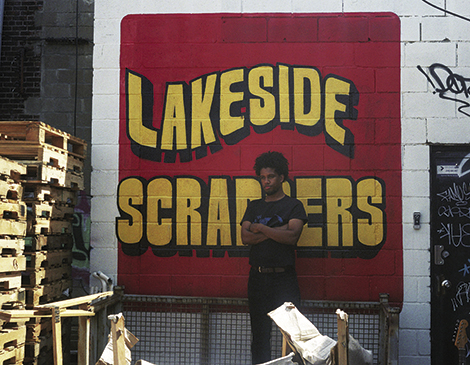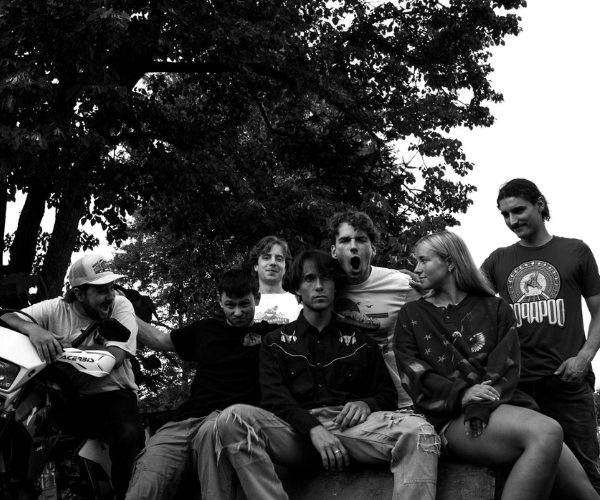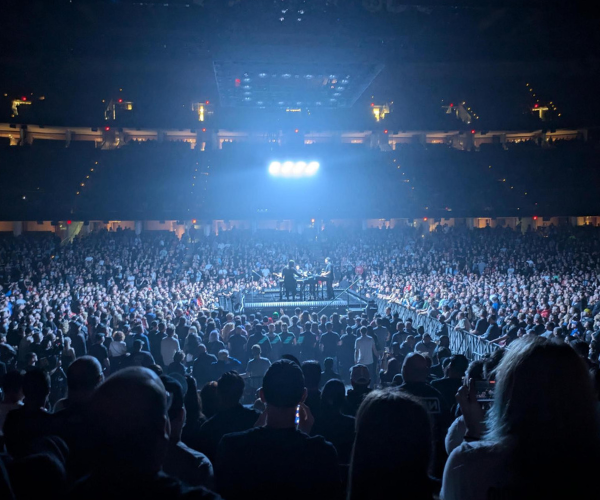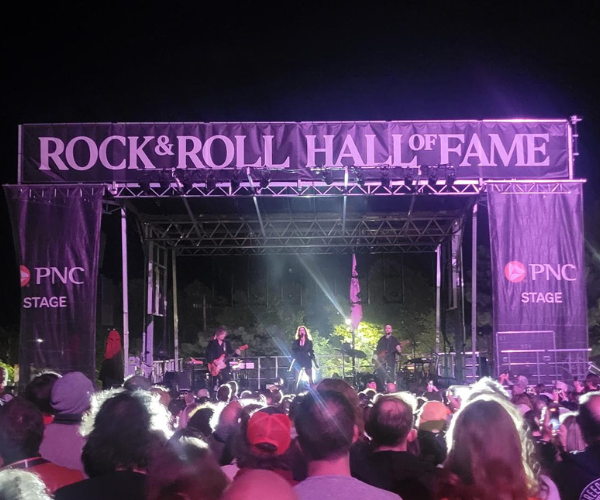Braxton Taylor isn’t waiting for permission.
It’s 1 p.m. on a Saturday in October. Hedges frame a makeshift stage of amps and drums on the lawn of Rockefeller Greenhouse in Cleveland. Taylor’s hat nearly falls off as he hops around, emphasizing each vicious vocal line. His punchy white stratocaster reaches Martin Luther King, Jr. Drive. A drone hovers above the performers, including hip-hop artist Mother Lurk and country-punk act the Cotton Ponys, led by the exhilarating Macy Franko and featuring Taylor on guitar.
The show — ethnically and generationally diverse, free, idyllic, female-dominated and over by 3 p.m. — is a bit of a changeup.
“We’re on some new stuff,” Taylor tells the crowd. “Hope you don’t mind.”
A few weeks earlier, Taylor took a break from planning the Greenhouse show by strumming that strat in the East 74th Street apartment. The former schoolhouse is where he holed up in 2020 and began writing and rehearsing the songs that would become his 2021 solo debut Smith Taylor, a coming-of-age record that examines his past while laying out a blueprint for his future.
In the ‘90s, this place was a hub for artists, and as the light streams in from the two-story loft windows, their presence can still be felt. One of those artists, renowned poet and Mourning [A] BLKstar founder RA Washington, now plays bass in Taylor’s trio.
After the dissolution of SamFox, Taylor’s former band which earned acclaim from magazines like this one and notable slots such as BriteWinter, the songwriter set his sights on more than hometown heroics. In need of guidance, he turned to the scene’s elder statesmen such as Washington. Jamming with these like-minded artists helped him reconcile — and merge — his upbringing on soul, hip-hop and R&B with his later love of punk rock and avant-garde music.
“For the first time, I saw all these older black people who were weird and creative and pushing sound forward,” he says. “That unlocked me.”
That personal evolution can be heard in the singular sound on Smith Taylor, which is a left turn from his former group’s radio-friendly blues rock. The pivot is as sharp as the sonic shifts from punk to soul to trap-influenced vocals across that record, which also ranges thematically from personal reflection to outward investigation.
“I decided if I was really going to turn up and do this and go at a certain pace, I needed to go out on my own,” he says. “So that record is me trying to trust my own taste.”
These shows, he says, are a similar attempt to follow his instincts by curating a new type of live music experience, one that exists outside the normal institutions and models for success while also nodding to the city’s rich DIY tradition. As a young artist, Taylor thought conquering Cleveland’s venues and festivals would help him reach beyond the city. Now, he’s not so sure.
“The local scene is designed to keep artists local,” he says. “So instead, I’ll do a show for the public, down in an area that’s under-appreciated and introduce The Cotton Ponys crowd, for example, to black artists like Mother Lurk and myself and vice versa.”
With more DIY shows in the works, a cache of new material and big ideas on how to present it, there’s no doubting that Taylor’s debut is the start of something. What is that something? Even he’s not sure.
“Vision is a living, breathing thing,” he says. “You’re always refining it.”




